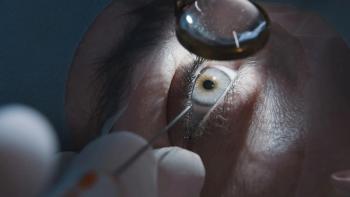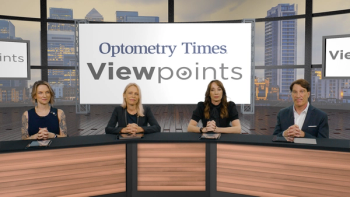
ARVO 2024: CHAMP Phase 3 trial finds myopia controlled by low-dose atropine 0.01% over 4-year course
This study also found that upon discontinuation, myopia development did not rebound, with NVK002 0.01% as a potential long-term treatment for pediatric myopia.
A recent study found 2 noteworthy outcomes: NVK002 (low-dose atropine 0.01%, Vyluma Inc.) maintained myopia control during a fourth year of dosing and discontinuation did not cause rebound myopia progression, according to first author Karla Zadnik, OD, PhD, from Ohio State University, Columbus. She presented her results1 at the Association for Research in Vision and Ophthalmology annual meeting in Seattle.
In this study, stage 2 of the CHAMP phase 3 trial investigated the effect of continued dosing of the drug for an additional 12 months on the control of myopia as well as the development of myopia rebound when the dosing was discontinued. In the previous stage 1 of the phase 3 CHAMP trial, the results indicated that more children treated with the atropine 0.01% dose had less than a half dioptre (D) increase in spherical equivalent refraction (SER) over the course of 3 years.
Stage 2 of the phase 3 trial included 116 of 164 children (age range, 3 to 16 years) (intent-to-treat set) from the stage 1 trial at baseline in the European Union and US with a SER between −0.50 to −6.00 D who were randomised to treatment with NVK002 0.01% eye drops administered at night for 36 months. Among those participants, 38 were randomized again to continue treatment with NVK002 0.01% for 12 months, for a total of 48 months dosing, and 39 were randomized again to receive placebo for 12 months to assess the development of myopia rebound. The cycloplegic SER and axial length (AL) were measured at 48 months, the investigators recounted.
NVK002 0.01% results
The results showed positive results for low-dose atropine. The authors reported, “Among the 38 participants who continued 12 additional months of dosing with NVK002 0.01%, the mean SER changed by -0.95 D (standard deviation [SD], 0.82 D) from the study baseline value, and the mean AL changed by 0.61 mm (SD, 0.62 mm) from the study baseline value.”
In contrast, in the 39 participants re-randomized from treatment with NVK002 0.01% to 12 months of placebo, the mean SER changed by -1.12 D (SD 0,.78 D), and the mean AL changed by 0.78 mm (SD, 0.42 mm).
The investigators reported that the between-group least-square mean difference (0.01% to 0.01% – 0.01% to placebo) in the change in the SER from study baseline at month 48 was 0.17 D (95% confidence interval, [-0.23, 0.57]; p = 0.4). The most common ocular adverse effect related to treatment was dry eye seen in 7.5% of patients receiving NVK002 0.01% compared with 2% receiving placebo.
The results suggested that NVK002 low-dose atropine 0.01% “continues to be both effective and safe for treating paediatric myopia progression following 4 years of nightly dosing, and that following a switch to placebo drops for 12 months after 36 months of treatment with NVK002 0.01%, no meaningful myopia rebound effect was seen.”
The authors believe that NVK002 0.01% may be a potential long-term treatment for pediatric myopia.
Reference:
Zadnik K, Hemmati H, Fong T, Chandler S. NVK002 low-dose atropine 0.01% maintains myopia control during a fourth year of dosing and discontinuation does not cause rebound myopia progression. Paper presented at the Association for Research in Vision and Ophthalmology annual meeting; May 5-9, Seattle, WA. Poster number: A0299
Newsletter
Want more insights like this? Subscribe to Optometry Times and get clinical pearls and practice tips delivered straight to your inbox.





























